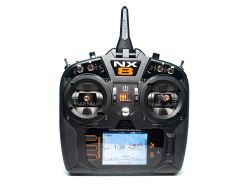Customer Reviews
This product hasn't been reviewed yet.
Write a reviewWrite Review
Please enter a valid email address.
This field is required.
Best Sellers
- Max Thrust Riot V2 PNP - Blue
€226.29 - Max Thrust Riot V2 PNP - Red
€226.29 - Dumas Ace Sloop Kit (1102)
€53.44 - Seagull Arising Star V2 40-46 Trainer
€196.72 - PRIME DESERT ASSAULT V2 BUGGY 4WD 1/10TH 7.2V NI-MH
€176.25 - FTX Vantage 1/10 4WD Brushless Buggy RTR
€250.16 - FTX Outlaw 1/10 Brushless 4WD ULTRA-4 RTR Buggy
€267.22 - FTX Carnage NT 1/10th RTR 4WD Nitro Truck
€227.42 - FTX Banzai 4WD RTR 1/10 Brushed Drift Car Waterproof
€147.82 - FTX Outlaw 1/10 Brushed 4WD ULTRA-4 RTR Buggy
€164.88 - Multiplex Solius RR 264264
€390.16 - Etronix Pulse GFSK EX2 Sport 2.4GHZ Wheel 2ch Radio
€39.79 - FTX Bugsta RTR 1/10th Scale 4WD Electric Brushed Off-Road Buggy
€147.82


